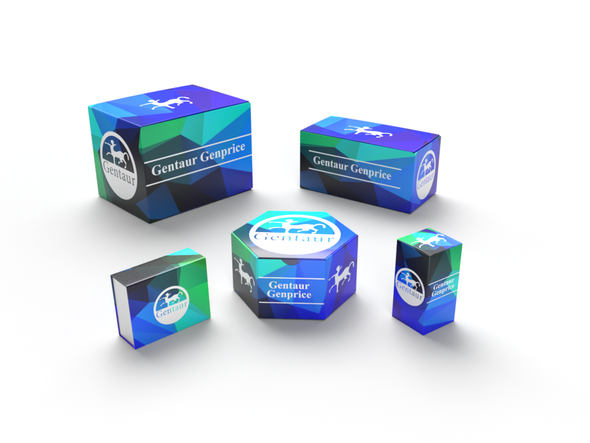740
Human Titin IgG antibody ELISA Kit | AE62545HU
- SKU:
- 740-AE62545HU
- Availability:
- Usually ships in 5 working days
Description
Human Titin IgG antibody ELISA Kit | AE62545HU | Gentaur UK, US & Europe Distribution
Species Reactivity: Human (Homo sapiens)
Abbreviation: IgG
Alternative Name: N/A
Application: ELISA
Range: 0.312-20 ng/mL
Sensitivity: 0.113 ng/mL
Intra-Assay: ≤5.8%
Inter-Assay: ≤9.2%
Recovery: 1, 04
Sample Type: Serum, Plasma, Other biological fluids
Detection Method: Competitive ELISA
Analysis Method : Qualitative
Test Principale: This assay employs the competitive enzyme immunoassay technique. The microtiter plate provided in this kit has been pre-coated with an antibody specific to IgG. Standards or samples are then added to the appropriate microtiter plate wells with a Horseradish Peroxidase (HRP) -conjugated IgG and incubated. The competitive inhibition reaction is launched between with HRP labeled IgG and unlabeled IgG with the antibody. A substrate solution is added to the wells and the color develops in opposite to the amount of IgG in the sample. The color development is stopped and the intensity of the color is measured.
Product Overview: Titin is a large abundant protein of striated muscle. A N-terminal Z-disc region and a C-terminal M-line region bind to the Z-line and M-line of the sarcomere respectively so that a single titin molecule spans half the length of a sarcomere. Titin also contains binding sites for muscle associated proteins so it serves as an adhesion template for the assembly of contractile machinery in muscle cells. It has also been identified as a structural protein for chromosomes. Considerable variability exists in the I-band, the M-line and the Z-disc regions of titin. Variability in the I-band region contributes to the differences in elasticity of different titin isoforms and, therefore, to the differences in elasticity of different muscle types. Of the many titin variants identified, five for which complete transcript information is available are described.
Stability: The stability of ELISA kit is determined by the loss rate of activity. The loss rate of this kit is less than 5% within the expiration date under appropriate storage condition. The loss rate was determined by accelerated thermal degradation test. Keep the kit at 37°C for 4 and 7 days, and compare O.D.values of the kit kept at 37°C with that of at recommended temperature. (referring from China Biological Products Standard, which was calculated by the Arrhenius equation. For ELISA kit, 4 days storage at 37°C can be considered as 6 months at 2 - 8°C, which means 7 days at 37°C equaling 12 months at 2 - 8°C) .






